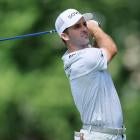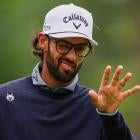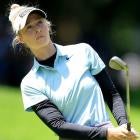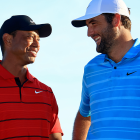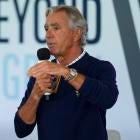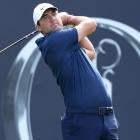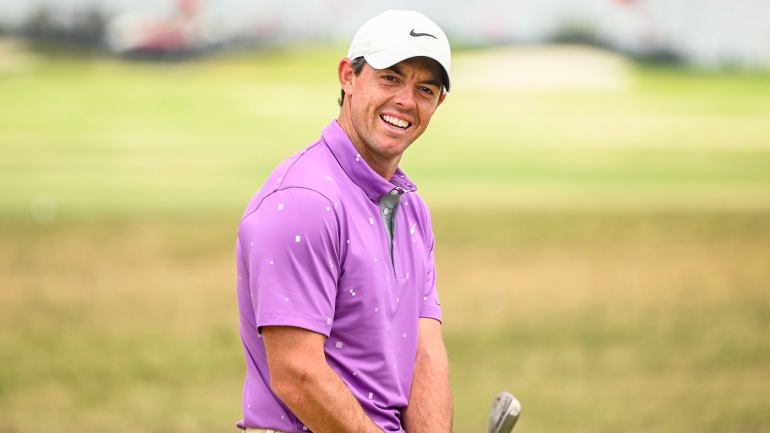
The Olympics golf field has now been set, although it was seemingly changing by the hour. Qualifying for the 2020 Tokyo Olympics ended after the U.S. Open, but the field had been weathering some late withdrawals from some of the best players in the world.
Dustin Johnson announced earlier this year that he would not be competing, even if he qualified (which he did), and that was followed over the last few days by WDs from Sergio Garcia (Spain), Tyrrell Hatton (Great Britain) and Louis Oosthuizen (South Africa). Their loss is the gain of other players from their respective countries, but the sub-narrative here is that Olympic golf has just not climbed the priority list for a lot of the world's best.
Several different reasons were given by these golfers, including focus on family time, COVID-19 complications and commitment to other golf competitions like the FedEx Cup and Ryder Cup.
"I have made one of the most difficult decisions of my life," wrote Garcia on Twitter. "I love the Olympic Games, and it is always an honor to represent Spain, however my number one sporting priority is in the Ryder Cup at this moment. Everyone knows what the Ryder Cup means to me. My number one objective is to qualify for the European Team by my own merit and not have to wait for a possible invitation. To represent Spain in the Olympic Games is a gift and enormous responsibility, and requires 100% mental focus. If I already qualified for the Ryder Cup, I would play the Olympic Games with certainty."
Still, many of the top players in the world will be in attendance in Tokyo at Kasumigaseki Country Club from July 29 - Aug. 1. New world No. 1 (and U.S. Open champion) Jon Rahm will be there for Spain. He will be joined by Rafa Cabrera Bello, who replaces Sergio Garcia.
On the American side, Justin Thomas, Collin Morikawa, Xander Schauffele and Bryson DeChambeau all qualified and are slated to attend. They will be joined by Rory McIlroy (Ireland), Viktor Hovland (Norway), Hideki Matsuyama (Japan), Paul Casey (Great Britain), Abraham Ancer (Mexico), Sungjae Im (South Korea), Tommy Fleetwood (Great Britain), Corey Conners (Canada) and Shane Lowry (Ireland).
All of the top 15 golfers in the world are eligible to compete in the Olympics, but each country is limited to a maximum of four Olympians overall, which means golfers like Brooks Koepka and Webb Simpson -- though they are in the top 15 in the world -- are on the outside looking in. The U.S. is the only country sending the max of four. The rest of the 60-man field is filled out based on the highest-ranked player in the Official World Golf Rankings with a max of two golfers per country, unless that country has two or more in the top 15 (in which case a given could take up to four golfers).
The U.S. team has completely turned over from 2016 when it included Bubba Watson, Rickie Fowler, Patrick Reed and Matt Kuchar. That year, multiple U.S. players withdrew from the 2016 Rio Olympics for a variety of concerns. This time around, fewer golfers have declined to go. Only DeChambeau would not have qualified if D.J. had opted to compete.
Olympic golf is fascinating because it's such an inequitable -- and small -- field. Seven of the probably 10 or 15 best players are in the same 60-man field as golfers like Juvic Pagunsan (No. 216 in the world), Hurly Long (No. 263) and KK Johannessen (No. 292). It creates a bizarre dynamic over the course of the four days of competition.
In 2016, which featured the first rendition of men's golf at the Olympics in over 100 years, Justin Rose won the gold medal while Henrik Stenson finished second and Matt Kuchar finished third. None of those three qualified this time around for the 2020 Tokyo Olympics.










